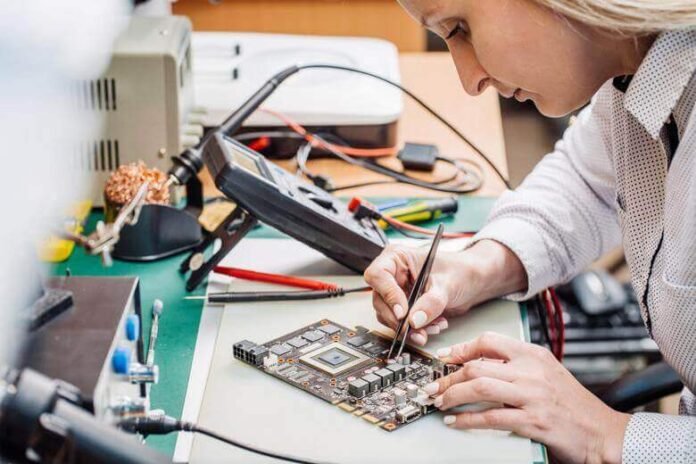Electrical engineering enables diverse uses of electricity. Wira Electrical engineers have helped shape and modernise society over the past two centuries by studying, designing, and using electricity. Their influence is seen whenever someone turns on a light, TV, or smartphone. Electrical engineering rewards innovation and skill. Electrical engineers can create new devices, systems, and structures with their ingenuity. Many of the most successful electrical engineers have advanced degrees, such as an MSEE, which can help students improve their math and science skills while developing creative ones. Students and working professionals both might benefit from a master’s in electrical engineering. It helps new electrical engineers stand out from the throng and allows experienced engineers to advance.
Electrical and engineering benefits
Despite its concentration on math and science, engineering is a creative field. Engineers’ inventiveness can solve complex problems. They constantly design, develop, test, and execute new concepts, products, and systems. Engineering benefits telecommunications, healthcare, transportation, and manufacturing. Due to the dynamic nature of technology and society, creative engineers are needed more than ever.
Electrical Engineers Have an Effect
Electrical engineers have helped come up with a lot of new ideas that have made society better and helped it move forward. The following are some of their most important contributions.
LIGHT BULB
Thomas Edison is probably the most well-known electrical engineer in history. In 1879, he and the British scientist Joseph Swan made the light bulb work. Edison and Swan made incandescent light bulbs in their own countries, which made it possible for houses and later streets to be lit by electricity.
RADAR
During the first half of the 20th century, electrical engineers helped make radar technology. This was mostly because of the increased risk of aerial attacks after World Wars I and II. Before World War II, the U.S. military put a lot of money and time into developing this technology. They went into the war with two different systems to help give them an edge over enemy forces.
MICROPROCESSORS
Microprocessors were invented in 1971 by an electrical engineer at Intel named Marcian Edward “Ted” Hoff. Without microprocessors, there would be no personal computers today. Microprocessors are also used in ATMs, cars, robots, and different types of hospital equipment.
WI-FI
Electrical engineers helped make Wi-Fi and portable internet access possible, which gives billions of people easy access to a never-ending stream of information. These new ideas led to the creation of other devices that changed the world, like the smartphone.
Electrical engineers have been making the world a better place for almost 200 years, and their work will continue to do so for many years to come. For example, electrical engineers work hard to protect the environment and stop climate change. They do this by helping to get energy from renewable sources and making appliances and other products use less energy. They also make a big difference for the future of drone technology and space exploration. People with more education will be best able to help make these kinds of breakthroughs. With the chance to make important contributions to society and the many professional rewards that come with being an electrical engineer, it is well worth it to get a master’s degree in electrical engineering.
What are the benefits of getting a master’s degree in electrical engineering?
Even though it’s not required for a career, getting a master’s in electrical engineering can help both students and working engineers improve their skills. A bachelor’s degree can help students learn the basics of physics, math, and engineering, but it may also limit the kinds of jobs they can apply for. A master’s programme can help you develop skills like strong technical, creative, communication, problem-solving, and critical-thinking skills that are important for a career in electrical engineering. Getting an MSEE can improve a candidate’s chances of getting a job, open up new career paths, and make it possible for them to make more money. For specialised jobs like test engineer, employers often want or need candidates to have a master’s degree. For leadership roles like project engineer or senior electrical engineer, you may also need a higher degree. In general, getting a master’s degree can help a person get a better job and make more money. The U.S. Bureau of Labor Statistics (BLS) found that people with a master’s degree made almost $250 more per week than those with only a bachelor’s degree, and their unemployment rate was almost 1.5 percent lower.
Engineer Certification
A master’s in electrical engineering may help professionals achieve the PE licence. A PE licence isn’t essential to be an electrical engineer, but it displays advanced knowledge and gives engineers more independence and power. Only licenced PEs can sign, seal, and submit engineering designs to a public body, under the NSPE. Government agencies and educational institutions must engage and contract with licenced engineers. Licensing requirements include:
• An ABET-accredited degree
• An FE test pass
• Four years’ relevant job experience (after passing the FE exam, engineers can be hired as engineering interns or engineers-in-training, where they can begin to gain essential work experience)
• PE pass
State regulations differ. Some states count a master’s degree toward PE job experience.
A successful career
Electrical engineers have contributed to the light bulb, radar, and wireless internet since the 19th century. Electrical engineering can help you apply technical knowledge to creative projects. Ohio University’s online Master of Science in Electrical Engineering programme offers 100 percent online curriculum and six specialisations.
